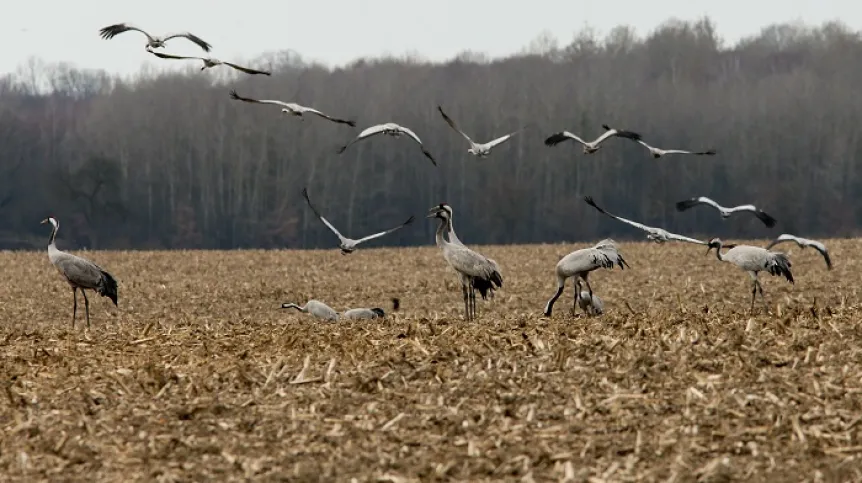
Populations of common European birds have declined by an average of 25% over the last 40 years. The most important reason for this phenomenon is the increasing use of pesticides and artificial fertilisers.
Intensification of agricultural activity, progressing urbanization and climate change - these are the visible effects of human activity that has a degrading impact on the environment. Until now, however, it was not known what exactly they meant for the functioning of ecosystems.
Now, for the first time, scientists have investigated how the functioning of bird populations is changing on a continental scale under human pressure. The publication in the Proceedings of the National Academy of Sciences is the result of cooperation between scientists from 28 countries. They analysed the numbers of 170 species of birds, consistently monitored for 37 years in over 20,000 study areas. The authors of the publication linked bird indicators with publicly available data on the environment, e.g. from Eurostat, the European Environment Agency or FAO, containing information on land use and climate.
They studied the direct links between these bird populations and four large-scale anthropogenic pressure factors: agricultural intensification, forest cover changes, urbanization and temperature changes over four decades of research.
‘This is really impressive material, the collection of which was possible thanks to the work of thousands of qualified ornithologists throughout Europe. In Poland, this program, called the Monitoring of Common Breeding Birds, is carried out by OTOP in cooperation with the Museum and Institute of Zoology of the Polish Academy of Sciences for the Chief Inspectorate for Environmental Protection', says Tomasz Chodkiewicz from the National Society for the Protection of Birds (OTOP) and the Museum and Institute of Zoology PAS, coordinator of the national bird monitoring program and co-author of the publication.
The researchers add that the collected data leave no doubt: the main cause of environmental changes that lead to a serious reduction in biodiversity is the intensification of agriculture. The increase in the use of pesticides and mineral fertilizers has led to a sharp decline of populations of many bird species. To the greatest extent – those feeding on insects. The scientists suggest to urgently introduce a system of control and regulation of certain agricultural practices in Europe.
'Maintaining a high level of agricultural production should not take place at the expense of environmental degradation, and consequently the quality of our life', says Lechosław Kuczyński from the Adam Mickiewicz University in Poznań, bird monitoring expert and co-author of the paper.
'If specific agents, in this case pesticides and fertilizers, affect numerous bird species so strongly, they deteriorate the overall health of entire ecosystems', adds Przemysław Chylarecki from the Museum and Institute of Zoology PAS, co-author of the publication.
The research results come at an exceptional moment in European history, the authors of the paper emphasize. 'On one hand, this is the period of implementation of the European Green Deal with the new Farm to Fork strategy, which aims, among other things, to change food production to a more environmentally friendly one, while ensuring food security. On the other hand, the Russian invasion of Ukraine prompts European countries to change many economic and political strategies. How to reconcile high productivity with environmental protection and preventing climate change? The key may be finding a different model of food production than the progressive intensification and industrialization of agricultural production', the researchers write in a press release.
'Our results suggest that the fate of common European bird populations depends on the rapid implementation of transformative change in European societies, and especially in agricultural reform', the authors of the publication say.
PAP - Science in Poland
zan/ bar/ kap/
tr. RL













